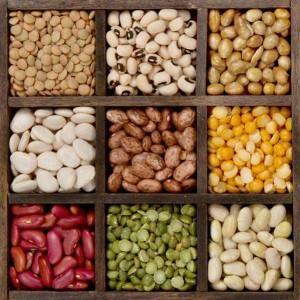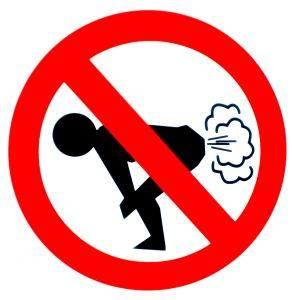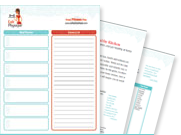Beans are the bomb! They’re super nutrient dense – packed with protein, complex carbohydrates, vitamins and minerals. Plus, they’re low fat and rich in both soluble (lowers cholesterol) and insoluble (keeps things moving, if ya know what I mean) fibers. Including 3 cups of cooked dry beans in the diet on a weekly basis will meet the U.S. Dietary Guidelines for Americans while reducing your risk for chronic diseases such as obesity, cancer, diabetes and heart disease. Given all of this, no one would deny the impressive punch that beans add to a healthy diet. However, sometimes the hasty addition of lots o’ beans to the diet can lead to some, well…er…unwanted consequences. You feel me?  Some researchers have reported that flatulence associated with bean intake may be exaggerated, and while it’s true that individuals vary in their response to increased fiber intake, I personally can vouch for the fact that some of us are certainly not exaggerating. When I first started eating more beans, things got so out of hand (I’m trying my best here, folks) that I made an appointment with a GI doc. He basically said, “Eating lots of beans and vegetables leads to insane gas in some people. You’re one of those people. You can either continue to eat healthy and allow your body to adjust, or you can revert back to eating junk and be gas-free.” Alright then. I chose to keep plugging along, and I’m glad I did. I now enjoy a diet chock full of amazing veggies every day and beans multiple days a week. If you want to hop aboard the yummy bean train with me, try these tips to reduce the occurrence of intestinal gas when eating beans:
Some researchers have reported that flatulence associated with bean intake may be exaggerated, and while it’s true that individuals vary in their response to increased fiber intake, I personally can vouch for the fact that some of us are certainly not exaggerating. When I first started eating more beans, things got so out of hand (I’m trying my best here, folks) that I made an appointment with a GI doc. He basically said, “Eating lots of beans and vegetables leads to insane gas in some people. You’re one of those people. You can either continue to eat healthy and allow your body to adjust, or you can revert back to eating junk and be gas-free.” Alright then. I chose to keep plugging along, and I’m glad I did. I now enjoy a diet chock full of amazing veggies every day and beans multiple days a week. If you want to hop aboard the yummy bean train with me, try these tips to reduce the occurrence of intestinal gas when eating beans:
- Increase beans in your diet slowly. Don’t go “hog wild” from day 1 – take your time!
- Drink more water each day as you eat more beans (or other high-fiber foods).
- Use the hot soak method when preparing dry beans. The longer beans soak, the more you will reduce the amounts of the gas-producing compounds.
- Change the water several times when soaking dry beans, and discard this water when soaking is completed. Many of the gas-causing carbohydrates are released into this soaking water.
- Rinse canned beans without sauce (such as kidney, navy, Great Northern) before eating or using in recipes.
- Consider using a gas-reducing enzyme tablet. These tablets are available over the counter in many pharmacies.
If you’re interested in increasing your bean intake but feel clueless about what on earth to actually do with beans, make an appointment to work with one of our registered dietitian nutritionists and stay tuned for Part 2 where I’ll talk about preparing bean-centric dishes.


